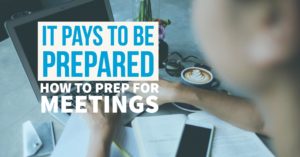
Risk is a part of most business equations, but making assumptions without first doing your research is just bad planning. Several years ago as a consultant, I worked with the Executive Director (ED) of an association on a government relations campaign. He had attended many government meetings over the years but I had gotten him an important meeting an Assistant Deputy Minister (ADM).
Since the association had wanted to meet with the ADM for some time, they had lots of information to share. The ED was eager to communicate as much information as possible. He glanced at his notes again and again but he hardly needed them. He knew his issues inside and out. The trick would be to make sure that the message was being delivered with all the necessary information following a logical pattern. The ADM was relatively new to the portfolio and was an unknown to the organization. The Executive Director wanted to make sure that he captured all the nuances of the message and left a good impression. I had suggested starting the meeting with a brief description of the association, followed by an overview of the profession, but the Executive Director was concerned about inadvertently insulting the ADM by addressing things that he could easily have learned prior to the meeting.
The Executive Director was about 45 minutes into the hour-long meeting when the ADM asked a question that revealed he had absolutely no knowledge of the profession, never mind an understanding of the association. It was at this point that the Executive Director decided that he would have to do three things, 1) abandon his presentation 2) start the discussion over again with a description of the profession and 3) not make eye contact with me for the rest of the meeting.
Fortunately, we subsequently built a strong rapport with the ADM, but the story stays with me because it so beautifully illustrates what happens when you make assumptions about your audience in business.
Tips on engaging your audience:
- Assume nothing about what people know
- Do your research, learn as much as you can about the person you are meeting with before you meet. Look them up on LinkedIn, search the internet for their bio.
- Send a briefing note in advance of the meeting if your time is limited.
- Bring material that you can leave behind in case your audience has questions after you leave.
- Complex messages require multiple meetings or messages.
